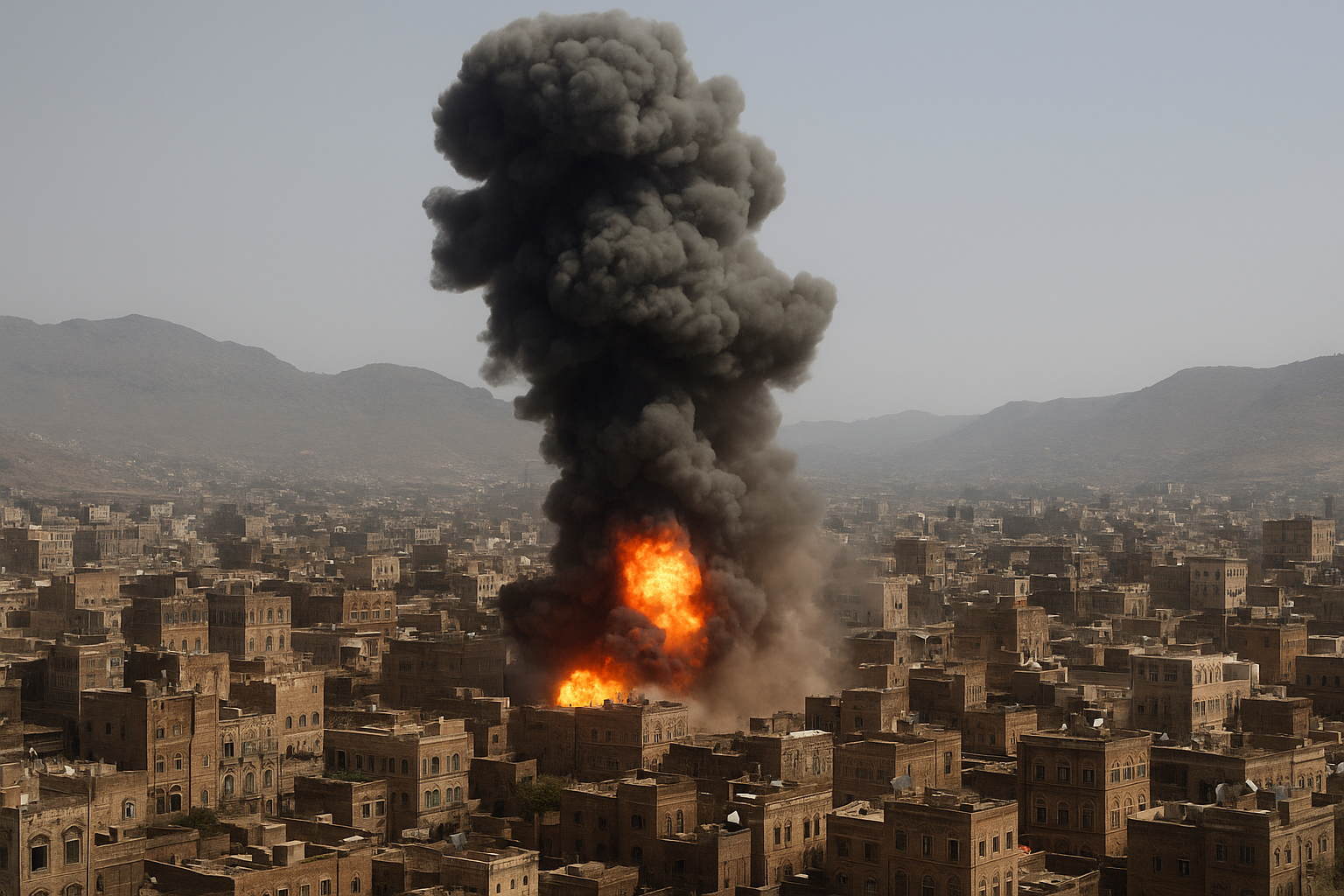What Happened?
In recent weeks, Israel has intensified its military campaign in Yemen, carrying out airstrikes on the Houthi-controlled capital, Sanaa. These attacks targeted energy facilities, airports, and even senior members of the Houthi leadership. Reports suggest that several high-ranking officials were killed, while infrastructure such as power plants and oil facilities were heavily damaged. Although no mass civilian casualties have been confirmed, the strikes sent shockwaves through a nation already grappling with years of conflict and humanitarian suffering.
Why Yemen?
The Houthis, an Iran-backed rebel group, have been launching missiles and drones toward Israel and disrupting Red Sea shipping lanes. In response, Israel has expanded its military reach to Yemen, aiming to cripple the Houthis’ operational capacity. By targeting ports, energy hubs, and command centers, Israel hopes to reduce the Houthis’ ability to coordinate and sustain attacks. The strikes are being framed as a defensive measure, but critics argue they risk inflaming an already fragile situation in the Middle East.
The Humanitarian Angle
Yemen is no stranger to crisis. Years of war have left the country with one of the worst humanitarian disasters on the planet. More than half of the population depends on international aid, and millions face severe food insecurity. Now, with airstrikes hitting essential infrastructure, the situation could become even more dire. Disruptions to electricity, fuel, and transport threaten to cut off access to food, medicine, and aid deliveries. For ordinary Yemenis, each new round of conflict only deepens their daily struggles for survival.
Regional Implications
Beyond Yemen, these strikes highlight the growing regional ripple effect of the Israel-Gaza conflict. The Houthis have positioned themselves as allies of Palestinian groups, tying their attacks to solidarity with Gaza. By striking Yemen, Israel is not only responding to immediate threats but also sending a broader message to Iran and its network of regional allies. However, this escalation risks widening the battlefield, potentially drawing in more players and complicating peace efforts already underway in Gaza and beyond.
Looking Ahead
For Israel, the strikes are about security and deterrence. For Yemen, they represent yet another chapter of destruction. International mediators, including Egypt and the United States, are pushing for renewed dialogue, hoping to prevent a wider regional war. Still, unless a balance is found between military objectives and humanitarian needs, the Yemeni people are likely to pay the highest price.
Israel’s strikes in Yemen are a stark reminder of how interconnected Middle Eastern conflicts have become. While they may achieve short-term military goals, the long-term cost could be greater instability, deeper humanitarian crises, and the risk of dragging the region further into conflict. The world’s challenge now is not only to manage security threats but also to ensure that vulnerable civilians are not forgotten in the fog of war.

